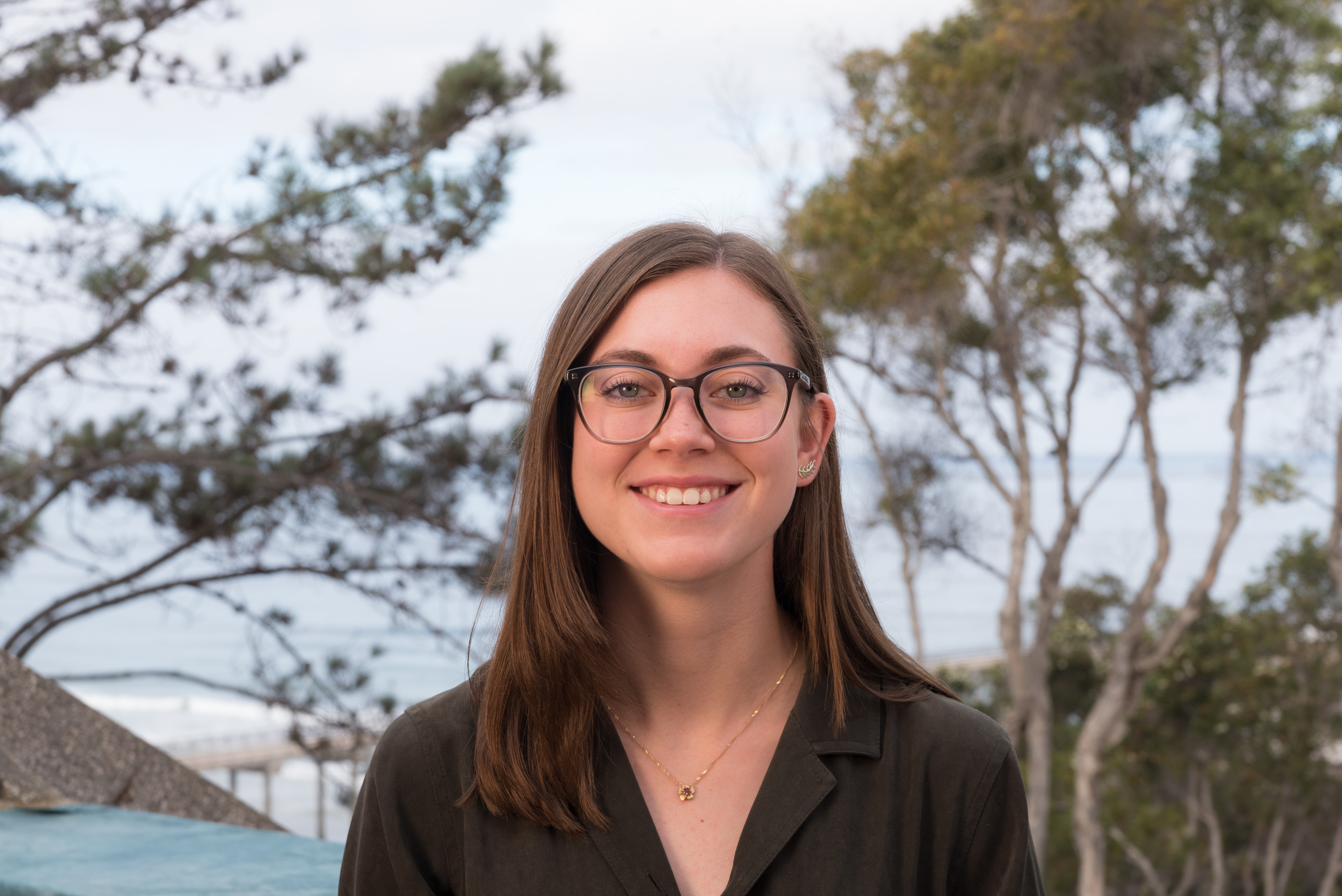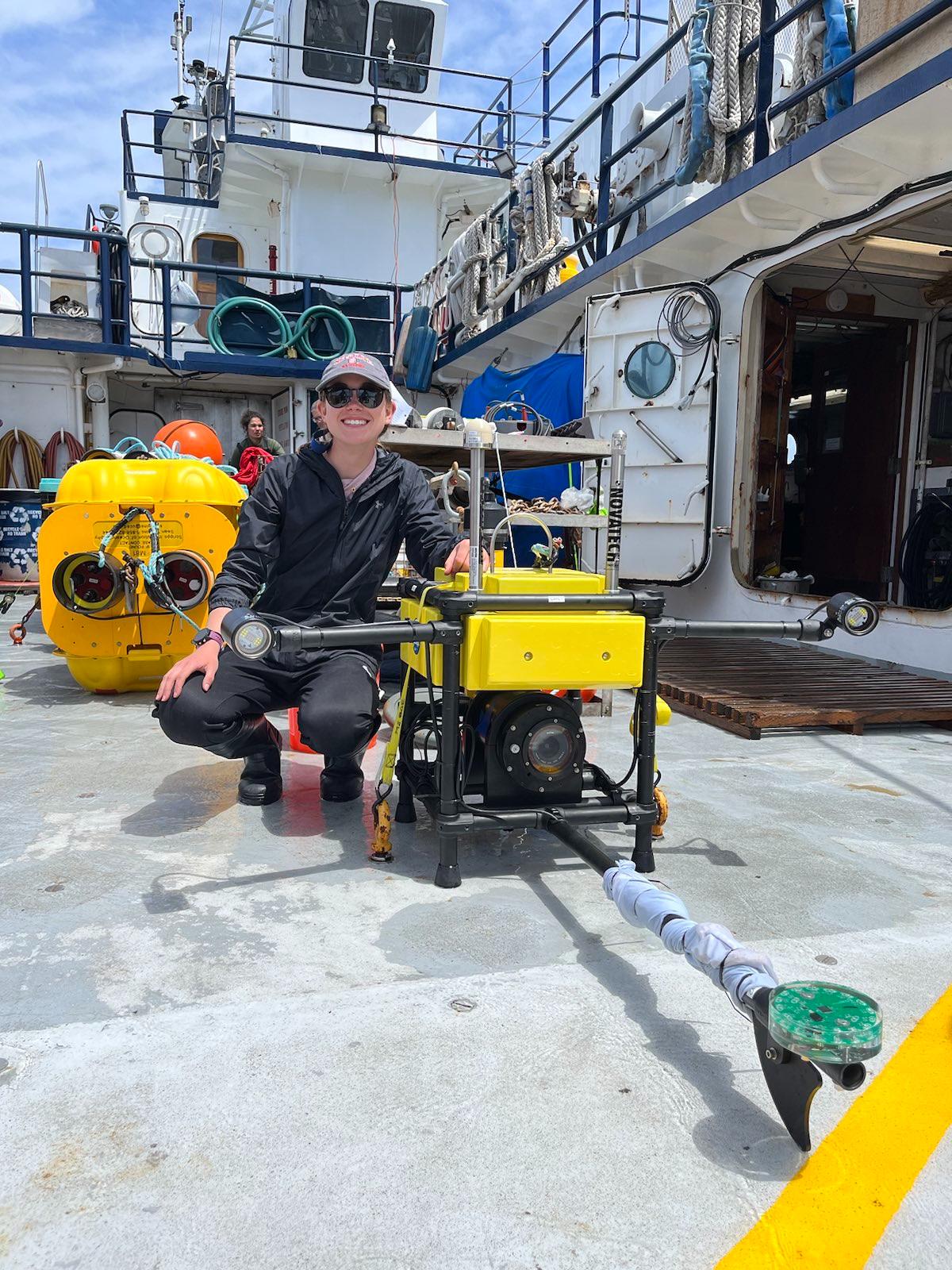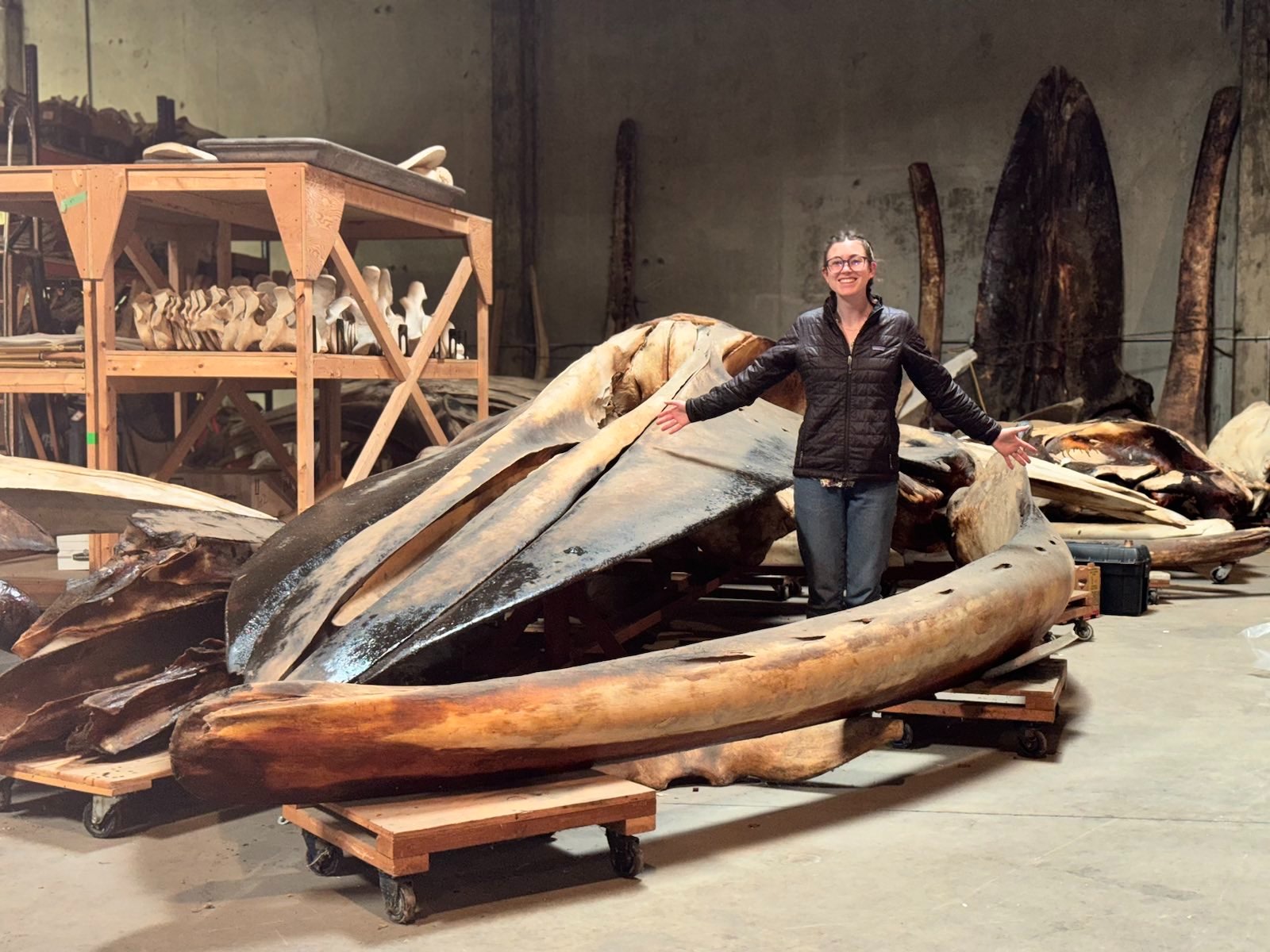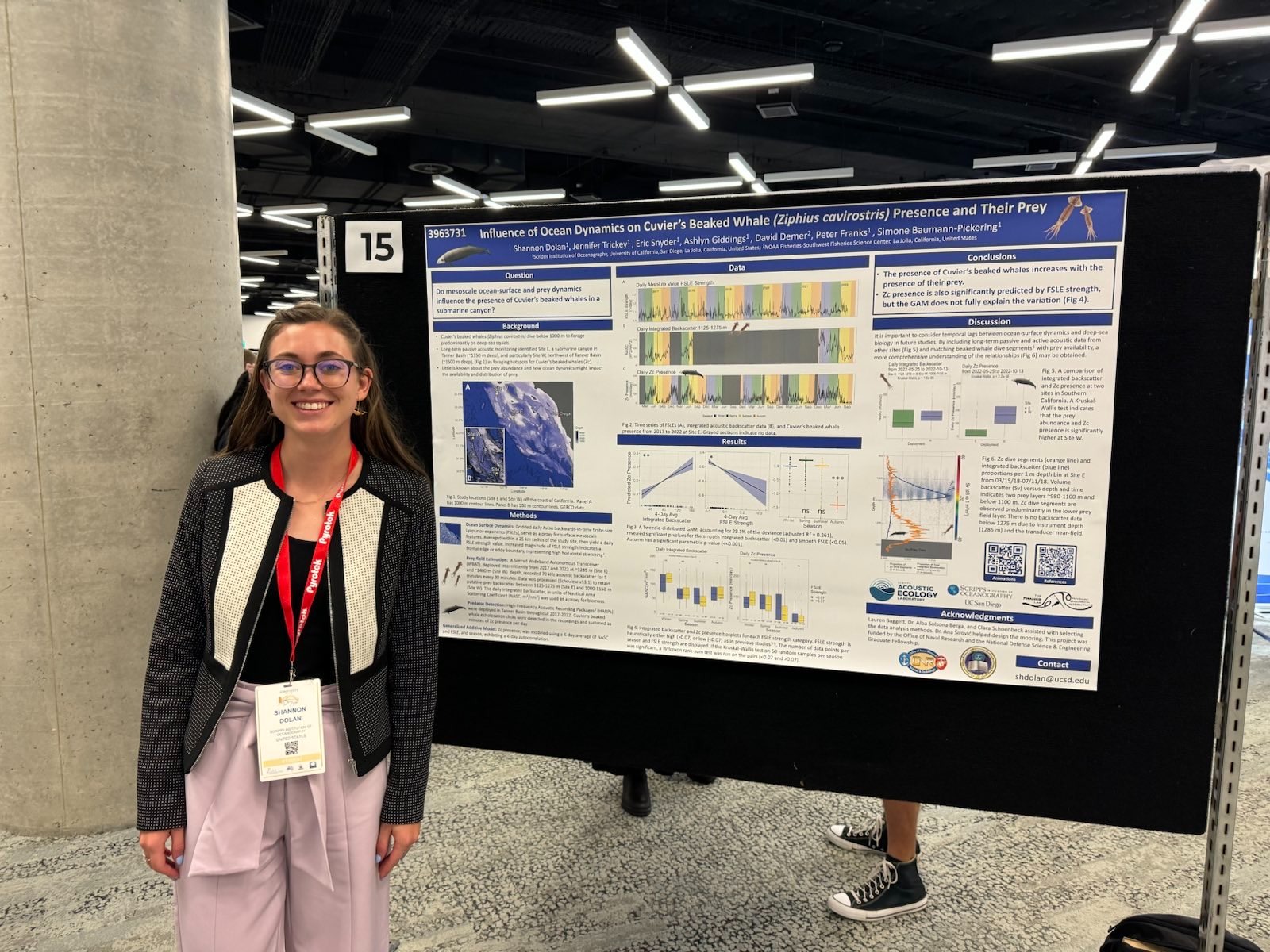Shannon Dolan talked to us about her work in conservation and sustainability, and how her experiences in undergrad led her to the National Defense Science and Engineering Graduate Fellowship program.
- Park Class: 2022
- Education: Bachelor’s degree in Environmental Sciences, minors in Marine Science, Applied Ecology, and Technical and Scientific Communication
- Currently: Pursuing a Ph.D. in Biological Oceanography at the Scripps Institution of Oceanography
- Hometown: Portland, Connecticut

What brought you to NC State and the Park Scholarships program?
In fond remembrance of Howling Cow, I feel inspired to answer this question with an ice cream metaphor. When I was applying to college, NC State was a delicious scoop of Wolf Tracks. It had everything I was looking for: a robust environmental science program offering flexible course options that aligned with my passions, numerous clubs to get involved in, a coastal research facility (CMAST), vibrant school spirit and arguably the best college mascot. The Park Scholarships program was the cherry on top. Park provided structured ways to improve my soft skills with leadership and DEI training. This, along with ample opportunities for self-reflection and a community of high-achieving individuals, helped shape my career goals and interests.
What were some of the highlights of your experience as a student at NC State and as a Park Scholar?
A fellow Park Scholar, Annalise Hafner, and I applied for a Sustainability Fund Grant and distributed 500 reusable straws on campus. This was fulfilling because it was one of my first large-scale environmentally-related projects. As a senior, I became a Sustainability Steward and advocated for healthy, sustainable and affordable eating options on campus. I helped develop a cookbook and organized cooking demos in the new kitchen in the gym.
This was fulfilling because it was one of my first large-scale environmentally-related projects. As a senior, I became a Sustainability Steward and advocated for healthy, sustainable and affordable eating options on campus.
Shannon
In 2019, I became a Doris Duke Conservation Scholar. The Doris Duke Conservation Scholars Program provided students with two summer internships, environmental fieldwork experience, conservation leadership training, mentorship, and professional development and networking opportunities. For the first summer, I worked at CMAST studying oyster reefs. For the second summer, I worked with the NOAA Southwest Fisheries Science Center on their annual acoustic trawl survey to study coastal pelagic species in the California Current Ecosystem. These two experiences were pivotal in shaping my interests and career goals.
Additionally, in my spring semester in 2020, I studied at the NCSU Center for Marine Science and Technology (CMAST) in Morehead City, NC. Before the pandemic disrupted the semester, I took 16 credits of marine-focused coursework from leading experts in their respective fields. I helped with cold-stunned turtle rehabilitation, drone aerial mapping oyster reefs and worked with the marine mammal rescue team. This experience solidified my love for studying the ocean.


Did your experiences as a Park Scholar contribute in any way to your professional choices and/or opportunities?
To start, Park gave me the confidence to pursue opportunities like the Semester@CMAST and applying for graduate school. The Park community and support helped me feel prepared and confident to pursue these enriching opportunities. And my Park mentor, Dr. George Hess, was instrumental in helping shape my career goals.
When I was applying to Ph.D. programs, I had a network of Park alumni within reach who pursued similar paths for advice. They were all super helpful!
Tell me a little about your career path. What influenced your decision to get involved in oceanography? What led you to apply for the National Defense Science and Engineering Graduate Fellowship?
The DoD National Defense Science and Engineering Graduate (NDSEG) Fellowship Program is a competitive fellowship that is awarded to U.S. citizens, U.S. nationals and U.S. dual citizens who intend to pursue a Doctoral degree aligned to the DoD services Broad Agency Announcements (BAAs) in research and development at a U.S. institution of their choice.
Presently, I am pursuing a Ph.D. in Biological Oceanography at the Scripps Institution of Oceanography (SIO) in the Scripps Acoustic Ecology lab. As an NDSEG fellow, I am researching beaked whale predator-prey dynamics under natural conditions and naval sonar noise. Broadly, I am interested in researching how anthropogenic noise is impacting marine mammals. I use a variety of technology to answer this question including passive and active acoustic data, underwater camera systems and environmental data sensors. Often, I am on a research cruise for 1-3 weeks recovering and redeploying our passive acoustic monitoring moorings and helping to collect supplementary data (MOCNESS tows).
Broadly, I am interested in researching how anthropogenic noise is impacting marine mammals. I use a variety of technology to answer this question including passive and active acoustic data, underwater camera systems and environmental data sensors.
Shannon
The next couple of years will be a lot of research, fieldwork, writing and presenting at conferences! Last summer, I spent five weeks in the Azores on an interdisciplinary project to tag deep-diving marine mammals, acoustically monitor the environment, and collect video footage and eDNA of prey species. I will be returning this summer to help with the acoustic monitoring and the video footage collection.
My work was recently spotlighted on SIO’s instagram, watch it here!
After I graduate, I hope to work for the federal government to protect, conserve and manage our oceans, particularly related to offshore wind development.

